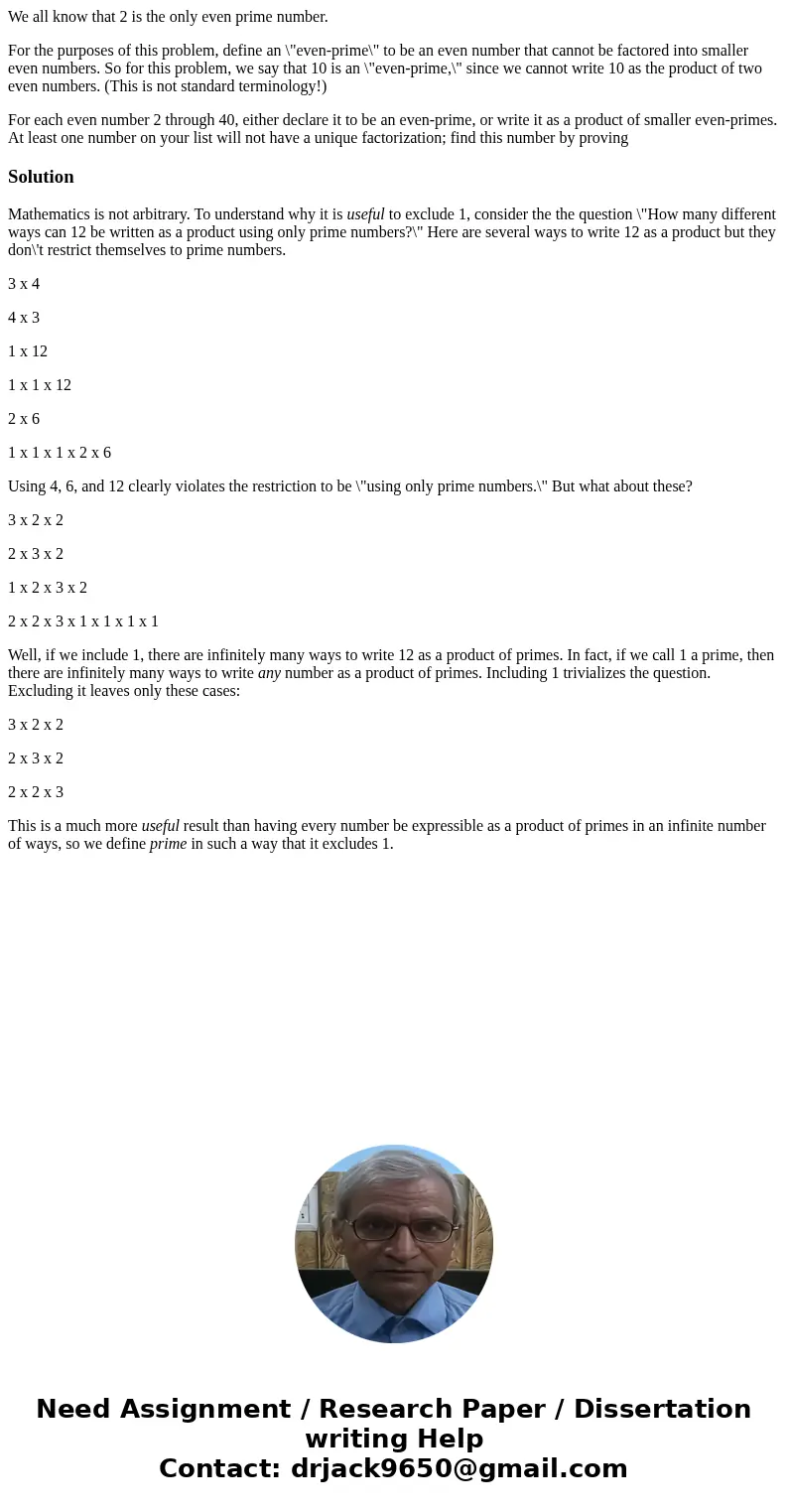We all know that 2 is the only even prime number For the pur
We all know that 2 is the only even prime number.
For the purposes of this problem, define an \"even-prime\" to be an even number that cannot be factored into smaller even numbers. So for this problem, we say that 10 is an \"even-prime,\" since we cannot write 10 as the product of two even numbers. (This is not standard terminology!)
For each even number 2 through 40, either declare it to be an even-prime, or write it as a product of smaller even-primes. At least one number on your list will not have a unique factorization; find this number by proving
Solution
Mathematics is not arbitrary. To understand why it is useful to exclude 1, consider the the question \"How many different ways can 12 be written as a product using only prime numbers?\" Here are several ways to write 12 as a product but they don\'t restrict themselves to prime numbers.
3 x 4
4 x 3
1 x 12
1 x 1 x 12
2 x 6
1 x 1 x 1 x 2 x 6
Using 4, 6, and 12 clearly violates the restriction to be \"using only prime numbers.\" But what about these?
3 x 2 x 2
2 x 3 x 2
1 x 2 x 3 x 2
2 x 2 x 3 x 1 x 1 x 1 x 1
Well, if we include 1, there are infinitely many ways to write 12 as a product of primes. In fact, if we call 1 a prime, then there are infinitely many ways to write any number as a product of primes. Including 1 trivializes the question. Excluding it leaves only these cases:
3 x 2 x 2
2 x 3 x 2
2 x 2 x 3
This is a much more useful result than having every number be expressible as a product of primes in an infinite number of ways, so we define prime in such a way that it excludes 1.

 Homework Sourse
Homework Sourse